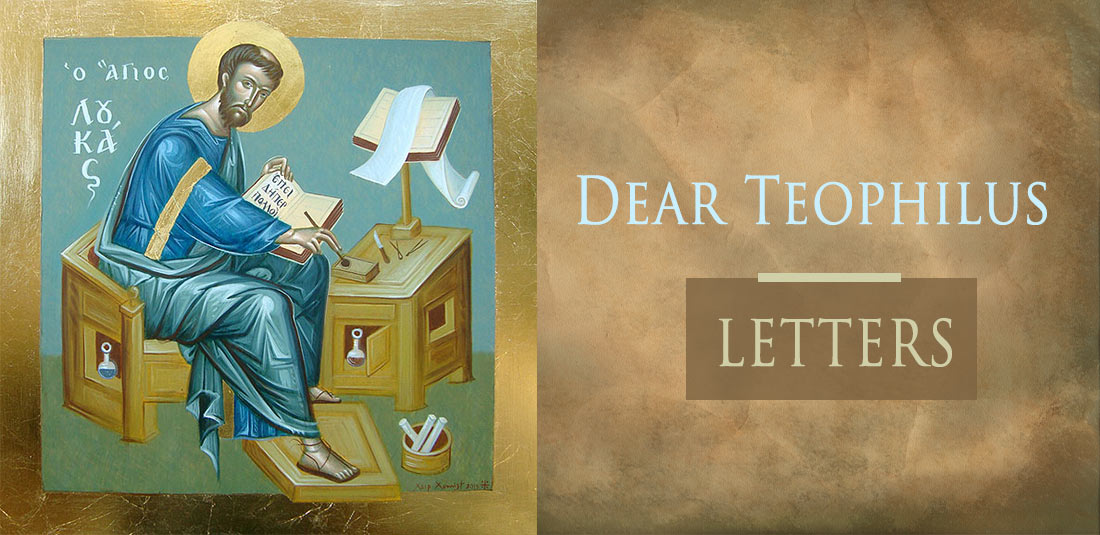Dear Theophilus , (Letter 73. )
You are back on your science kick. Fair enough – let’s take a look at your objections.
You refer to some of the comments made by Hawking in the last book that he wrote. He proposed that the universe could have popped into existence without violating the known laws of nature and so he claims that there is no need or necessity for us to propose that God exists. This really begs the question because there is an implicit acceptance that it is really laws of nature that determine what exists and what comes into being. But where did the laws of nature themselves come from? Are they eternal and unchanging? And another point – laws are, as most scientists would agree, descriptive not prescriptive. What this means is that laws describe how events occur but they do not cause them to occur. Therefore, to make a claim that the laws of nature made the universe to be is not being totally truthful and is in fact contrary to what science teaches.
You mention that God couldn’t have caused the universe to come into existence because there was no time for God to operate in before the Big Bang. This argument holds against a deistic god that we have discussed previously but the Christian concept of God is that He is above and beyond time and cannot be restricted in terms of what He can and cannot do, by time. In fact, it was Augustine who said that the universe and time were created simultaneously. Hawking, and many who echo his views, argues against a god that Christianity itself says does not exist – the god of deism.
Hawking’s explanation begins with quantum mechanics which deals with how sub-atomic particles such as electrons and protons behave. It seems, at least as far as our attempts at an explanation for phenomena at this level, that particles seem to ‘appear’ and ‘disappear’. But remember, that quantum mechanics is applicable at the level of the very tiny – no one has shown how it would work with the very large. Hawking gets around this objection by stating that at the ‘moment’ of the Big Bang, the whole universe consisted of a particle much smaller than even an electron and therefore quantum mechanics can be applied to this primordial particle. The problem, however, will not go away because, according to physics, at the ‘moment’ of the Big Bang, we had what is called a singularity and the laws at this point were very different form those that we have now. So much for Hawking’s claims that these laws are eternal.
One of the things that attracts you to science is what I would call pragmatism. It is the belief that if something works, it is true but this is not always the case. Brutality, for example, works in coercing people but it does not mean that it is true.
You are like a man who is in two minds. There is one part of you that feels that you are merely a material being and nothing else. But there is also another part of you that feels we have souls (whatever that may mean), that we are made in the image of God (whatever that may mean, as well). You are ambivalent and tossed around because you really have no grounding and science will not be able to give you that grounding because this is not the goal of science.
Although I have stated this in the past, allow me to summarize the weakness of your case. The first thing is that there is no basis for morality that can be solely grounded on science or on rationality. Number two, there is no rationale that we can give, for the reasonableness of the universe and life in general if there is no transcendent being – God. And the last point is that no one – no matter how erudite and learned they may appear – can account for and give a rational explanation for the fact that there is a universe. In this case, those wishing to make the case that science explains everything fail to explain why there is anything. This can be expressed in the following – we can explain what is but we cannot explain that is. Science explains the mechanisms that underlie many phenomena and are dealt with satisfactorily through physics, chemistry, biology. Science explains, and does it very successfully, what is by giving mechanisms for changes. But we must not confuse this kind of explanation for the one which is more fundamental and which is often taken for granted – the fact, the indisputable fact, that there is something.
The other major mistake that you make in your claims is to invert the significance of explainers. You seem to feel that the most basic explanation must come from science and you use this approach to evaluate and judge spiritual and religious claims. But this is the wrong way of seeing things. It is theology that has a more fundamental grasp on reality rather than science, as I have tried to illustrate in the three points that I raised above. Scientific explanations are incomplete and they will be replaced – that is the nature of the beast.
We must, at the same time, beware of falling into a one-sided consideration of reality. We were not made to be split beings but we are to integrate our knowledge and study of life and the universe. We were not made to stake our lives on sheer blind faith as some atheists have claimed. Always remember, the fact that atheists never practise what they preach – they make claims, such as the ones I listed above, as if they are their own but they have no basis for them.
We must be prepared to give rational answers for question that are raised and must not retreat into some kind of obscurantism. Ours is a rational faith because rationality is seen as a gift from God to be used in studying and learning about creation. This is not a sexy thing to say but it calls on us to be patient and to learn and to go back to books and to struggle to get a better understanding of our faith. We should be ready to give answers when we are posed with questions such as – why should I accept the Bible and what is written there. It is also to come to realize that science does not have all of the answers. I am reminded about an episode at the beginning of one of Woody Allen’s movies. He is seen skipping joyfully down the street and he explains why. He has just been to see his doctor who gave him a check-up and pronounced Woody in good health. And then the thought dawns on him – some day the doctor will find something wrong and Woody will not feel so good. What then? What do we say if our natural resources come to an end? Science cannot give an answer except to say that this is the way it is and that is all. We need more than what science can offer us.
The mind’s understanding must meet the heart’s longing and this is something we need to keep before us. But we must also keep in mind that the most appropriate access to truth is through worship, prayer and rejoicing. In a sense, the truth that underlies all of creation is poetic rather than rational but this definitely does not mean that we need to abandon our rational side. This would be to give a false image of the totality of who we are.
The other thing that I keep raising is that you are struggling against a false idea of Christianity. Christians, from the very beginning were not believers in religion – hence the charge that they were ‘atheists’. They believed, and swore their faithfulness and allegiance to Jesus of Nazareth, crucified under Pontius Pilate, the Jesus who rose from the dead and is now, by the power of the Holy Spirit, present in the Church for the whole world.
Christians would agree that religion is a natural impulse in humans and that many manifestations of religions are violent, superstitious, amoral, degrading, and false. So when atheists attack religions, Christians can, to a large extent, join them in the criticisms.
If Christianity is a new religion, then what new teaching or moral code does Christianity offer? Christianity does not bring new ideas – it brings new being. It does something, it accomplishes something as oppose to simply merely preaching something. It addresses the deep longings of humans since time immemorial by changing something fundamental in humans and in the created order and in this sense it is unique. Christians claim that in Christ something cosmic has occurred that affects all of creation. Christianity is a cosmic truth that cannot be defeated because it is all-encompassing. This is not a triumphalistic claim opposing Christianity to other faiths. It is simply a statement that in Christianity we have something unique and by stating this, it does not denigrate other belief systems. One cannot really compare Christianity to ‘religions’ although many commit this error.
Christianity is a community concerned with discovering what it means to love God, and one’s neighbour, to banish hatred, envy, and resentment and to seek and find the beauty of Christ in all of creation by practising the heroism of forgiveness. And doing all this not on one’s own resources but with the power of God’s grace.
Sincerely,
Bar-Abbas






